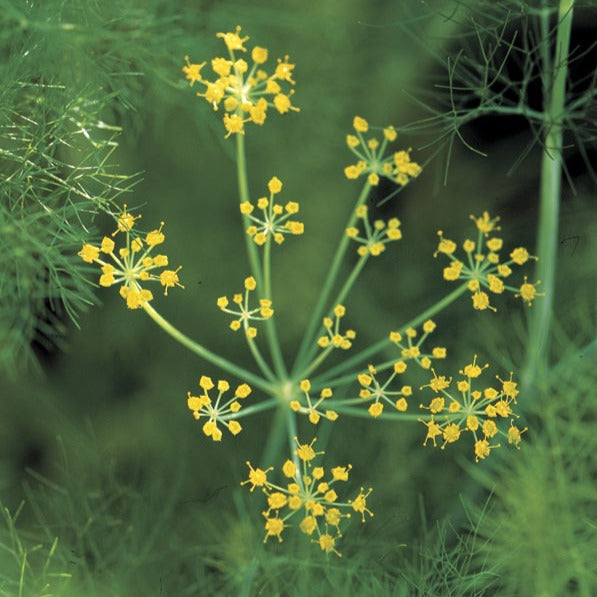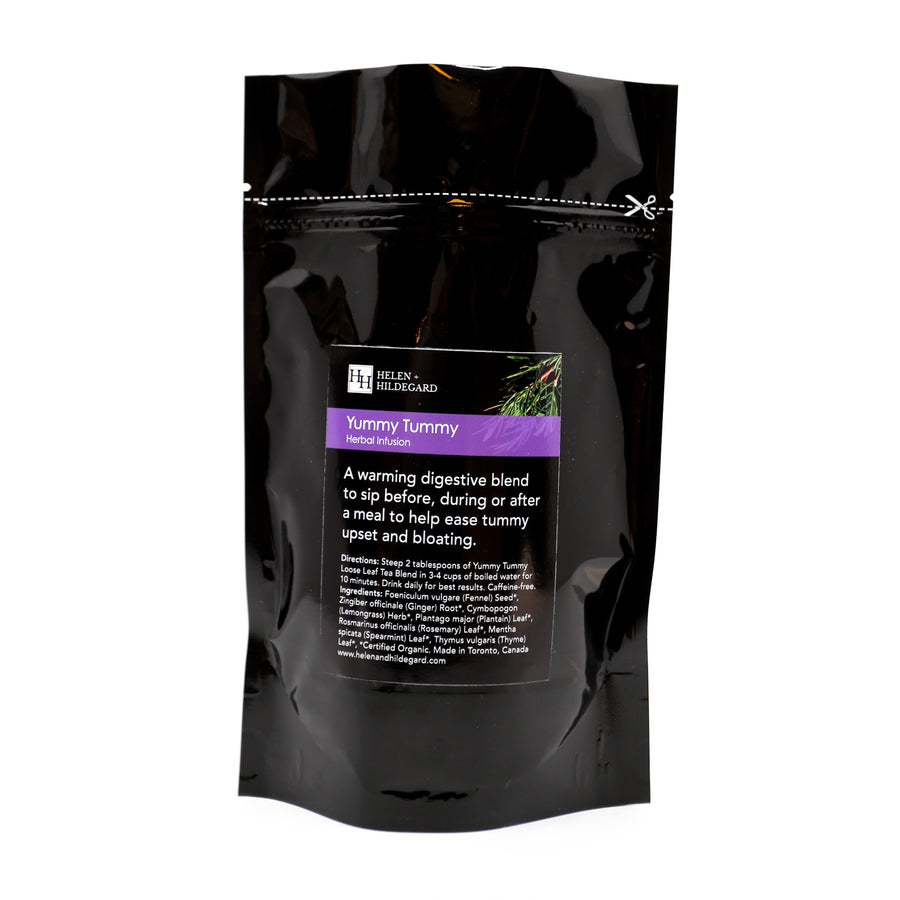
Latin: Foeniculum vulgare
Part Used: seeds
Constituents: anethole, fenchone, fatty oil
Medicinal Actions: carminative, aromatic, antispasmodic, stimulant, galactagogue, rubefacient, expectorant
Fennel has been used for centuries in both culinary and medicinal applications. It’s mentioned often in Anglo-Saxon recipes, and Seventeenth-century herbalist Nicholas Culpepper wrote in his Complete Herbal that it should be boiled with fish to aid in digestion.
In the medieval period, Fennel was planted around the home as protection against witchcraft, and hung over doors on Midsummer’s Eve to ward against evil spirits. In Ancient Greece, Fennel was used in ceremonies honoring Adonis and Dionysus, where it symbolized prosperity, fertility, and pleasure.
As a food plant, Fennel leaves can be harvested throughout the season, so long as you leave a third of the plant behind to continue growing, and the bulb can be harvested as soon as the base of the stem swells. The bulb is delicious in chopped salads with its fresh crisp fennel flavour. To harvest the seeds, allow some of the bright golden umbrella-like clusters of flowers to flourish. It will bloom in July and August and seeds can be harvested in the fall.
If you don’t mind sharing with the wildlife, Fennel leaves are a favourite food source for Swallowtail caterpillars. Sometimes they’ll also use the plant as a pupal site.
Uses & Combinations
As Culpepper suggested in his Complete Herbal, Fennel is an excellent remedy for the stomach and intestines. It relieves flatulence, and stimulates digestion and appetite. Fennel also has a calming effect on coughs and bronchitis, and can be used to flavour cough remedies. Nursing mothers can use Fennel to stimulate their breast milk production. Fennel has a sweet and gentle licorice-like flavour, which makes it a favourite tea for kids who might have tummy trouble.
Topically, oil infused with Fennel can be used to ease muscular aches and rheumatic pains.
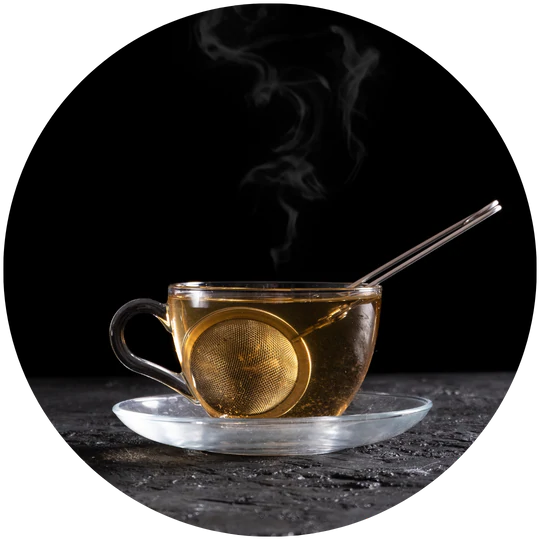
TEA RECIPE
Pour a cup of boiling water over 1–2 teaspoons of lightly crushed fennel seeds and infuse for 10 minutes. To aid in digestion, drink it half an hour before meals.
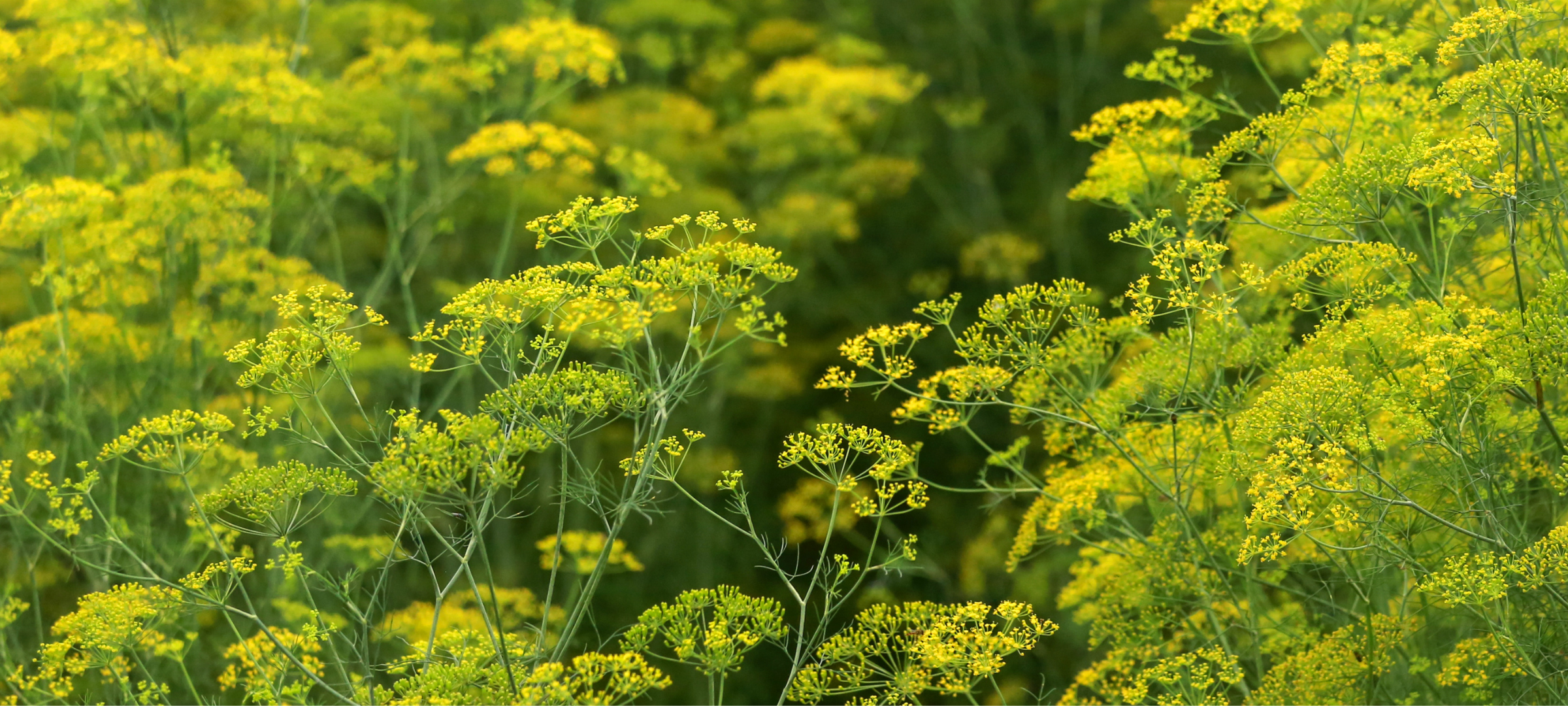
Identifying
Features & Cultivation
Fennel is most often grown as an annual plant. It has feathery leaves, similar to dill, though you’ll easily know the difference by its sweet flavour and aroma. It prefers moist, well drained soil and full sun, and will grow between 4–6 feet tall. Fennel grows quickly and takes well to containers.





